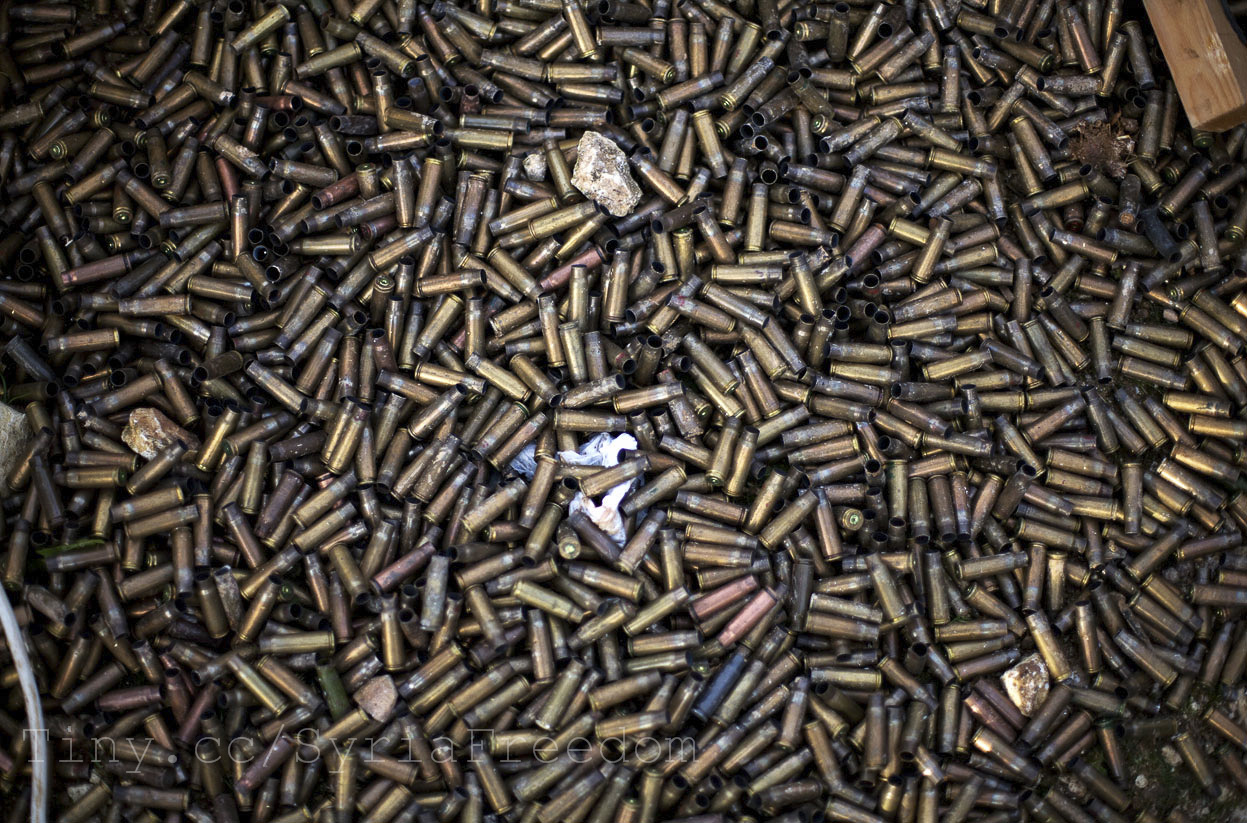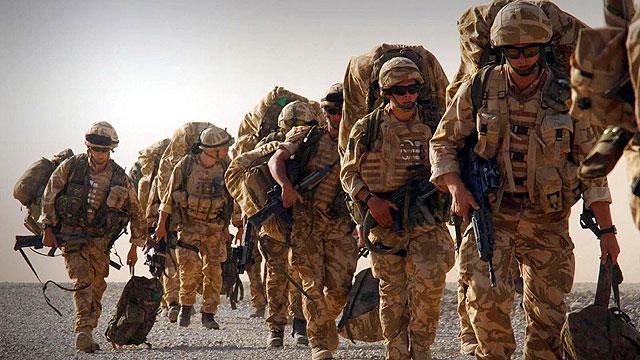The paper tiger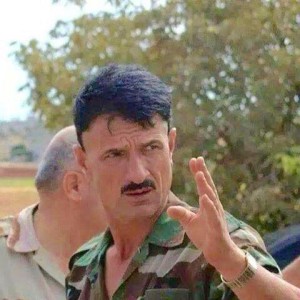
The prolonged conflict in Syria is starting to take a toll on the state and by extension Bashar al-Assad’s grip on power. A video surfaced recently from Syria showing “The Tiger” Colonel Suhail al-Hassan, one of the most prominent leaders in the Syrian Arab Army (SAA), highlighting a phone call between the officer and someone higher than him, possibly speaking either to defence minister Fahad Jassim al-Freij or president Bashar al-Assad himself. During the phone call al-Hassan could be heard “begging” the person at the other end to re-supply his forces, about 800 men as stated by him, with ammunition. This anecdote is merely a piece of the puzzle which helps complete the image of the current state of the Syrian military; outstretched, demotivated and facing mounting pressure the question comes up: “how much longer will it hold?”.
Loss of control
In summer 2014 unified Free Syrian Army (FSA) groups were able to establish dominance in southern Syria by driving regime forces from the Golan Heights border in Quneitra Province which was followed by substantial losses when the SAA was largely forced out of Idlib Province in the northwest by Jaysh al-Fatah (Army of Conquest). Crucial gains by opposition forces due to the desperate and crumbling SAA have even shifted the mechanism of authority in Syria, with Hizbullah taking a lead role in filling the ever-growing security vacuum.
Many Syrian officers expressed anger, anonymously, that a better organized, battle ready, and higher paid Hizbullah was eclipsing their authority. Syrian expert Charles Lister at the Brookings Doha Center, has stated that Hizbullah and Iran are building “a state within a state” in order to ensure regional connectivity between the Shi’a Islamist group and its sponsor. Lister argues that Hizbullah is not interested in the stability of all of Syria outside of the areas which affect it. Hizbullah was not in Idlib, as it had no vested interest in that region, and the SAA defence collapsed by itself.
Motion of no confidence
Qasim Soleimani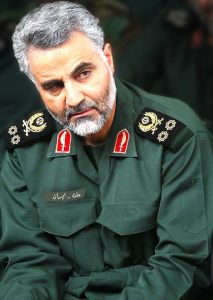 , Major General of the Iranian Revolutionary Guards Corps (IRGC), refused to meet with Syrian defence minister Fahad Jassim al-Freij after Syrian losses in and around Idlib in the north and Daraa in the south. This reflects the level of dissatisfaction that Iran has been feeling with the Syrian regime’s inability to hold the line. The IRGC who were previously fighting on the frontlines against opposition groups were re-deployed to strategic-points near Damascus. Although these movements were coordinated with the Syrian military, the Iranians, believed to be around 6,000 men, were acting independently without interference.
, Major General of the Iranian Revolutionary Guards Corps (IRGC), refused to meet with Syrian defence minister Fahad Jassim al-Freij after Syrian losses in and around Idlib in the north and Daraa in the south. This reflects the level of dissatisfaction that Iran has been feeling with the Syrian regime’s inability to hold the line. The IRGC who were previously fighting on the frontlines against opposition groups were re-deployed to strategic-points near Damascus. Although these movements were coordinated with the Syrian military, the Iranians, believed to be around 6,000 men, were acting independently without interference.
The shift of Iranian forces to the Damascus region indicates two matters: Iran’s growing mistrust of Syria’s capacity to hold key strategic objects, and the expected opposition breakthrough towards Damascus. With new vigour, the opposition groups have expanded and pushed back the regime, and that momentum has not slowed down. Iran’s foresight in the issue has led them to consolidate defensive positions around Damascus and abandon ambitions to hold off Syrian rebels at current line of contact and this has aided the rebels on an already weakened front.
King in the North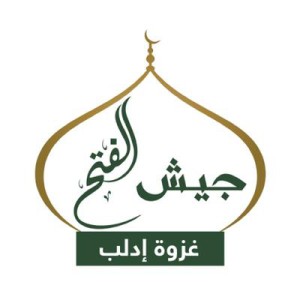
“Desperate times call for desperate measures” seems to be the motto that Saudi Arabia has adopted as it set aside its differences with Qatar and Turkey with respect to the role of Ikhwan al-Muslimeen (the Muslim Brotherhood) groups and has funnelled support to a recently established Jaysh al-Fatah, a conglomerate of Islamist groups fighting al-Assad. Although the Saudis see the Muslim Brotherhood as a domestic threat, they have prioritized the overthrow of al-Assad as an objective to start stabilizing the Syrian conflict. While they were not funding groups at Washington’s urging, they are now. A major rift which contributed to the bold step taken by the Middle Eastern monarchy was US’ rapprochement with Iran and the breathing space it has provided Tehran to continue pursuing its objectives in the Middle East.
The Al-Nusra wildcard
One of the groups cooperating under the Jaysh al-Fatah umbrella, much to the dismay and concern of Washington, is al-Qa’ida affiliate Jabhat al-Nusra (The Nusra Front) which participated in expelling the SAA from Idlib. The priority of the Ankara-Doha-Riyadh nexus is now getting rid of al-Assad and there is now consensus between the regional powers upon pragmatism. A reinvigorated north is exactly why the tides have turned against the SAA and the perception of al-Assad’s power has been dissolved.
Had the US not cut support to Harakat Hazzm, a moderate group previously aided by the US which disintegrated in March due to al-Nusra attacks, and supplied it with airstrikes against them, it would have been possible to stop al-Nusra from causing the collapse of Harakat Hazzm and subsequently to exclude al-Nusra from Jaysh al-Fata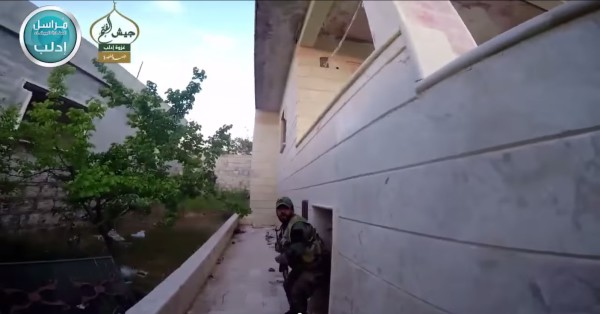 h, but this is hindsight and hindsight is always too late.
h, but this is hindsight and hindsight is always too late.
Will al-Nusra be a problem? Al-Nusra, although a significant contributor, is not the major player both numerically and influentially amongst the more moderate groups it is working with. Although it declared that it has no interest in “monopolizing power” in the now opposition controlled Idlib, neither will it have a strong influence in local politics. It is vital, for Jaysh al-Fatah’s patron states, to keep al-Nusra’s rhetoric subdued by heavily supporting the moderate groups through socioeconomic programs in order to curb the appeal which al-Nusra has as an alternative group which provides better benefits to its fighters.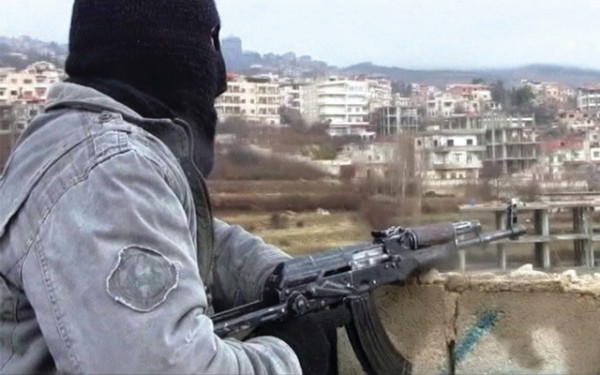
Future scenario
There is a newfound pragmatism under which Turkey, Qatar and Saudi Arabia now operate, the objective of which is to remove al-Assad as soon as possible. If successful, this will cut off Iran’s reach in the region rendering it powerless in aiding Hizbullah which in turn would potentially collapse. Under a scenario where al-Assad is no more, moderate rebel groups, reliant on foreign support, may have to deal not only with the Islamic State, but also with al-Nusra who, at one time was their ally against al-Assad.

